The Lead
Instead of writing an entirely new post, I’m going to be riffing a bit on some of my recent freelance articles — the details that didn’t make the final cut, pitching and working with new editors, the pros and cons of “freelance brain,” and some pictures and videos that didn’t get published.
First, at the beginning of the month, Meduza published a story that I’ve alluded to a few times on this blog already. It’s the longest project I worked on all year. I think of it almost as my thesis of this whole experience.
This piece was a lot of work: seven months of reporting, more than 30 interviews with professors, business owners, government officials, many long-haul truck drivers, and then three weeks of edits with the lovely folks at Meduza to get it out for their monthly English-language newsletter, “The Beet.”
So if you’re going to read only one of these pieces, read this one (linked above). It also has maybe my favorite opening line to a story I’ve ever written.
In the back half of the article, I get into details about some of the local politics in Rēzekne, specifically the ex-mayor’s ambitious building plans, alleged corruption, and the city’s now disastrous financial outlook. In the piece, I wrote simply that the politician in question — Aleksandrs Bartaševičs — “declined to be interviewed for this story.” That’s true, but there’s a backstory.
After weeks of sending emails to his political party and directly messaging him on Facebook, I was tired of waiting. Multiple people told me that Bartaševičs was a charmer who usually is willing to sit down for an interview with anyone who asks. So, on a Saturday morning, I walked into his political party’s office and said that I wanted to speak to the man himself. Some staffers in the office said that he was out for the day but I could come back the next morning at 10 and interview him. “Great,” I said. “See you tomorrow.” Easy.
That night, I spent a couple hours reading up on Bartaševičs’s career, writing interview questions, and considering the order in which I’d ask them. The next morning, I put on my best dress shirt, some nice slacks with no threads hanging off them, and a sport coat. I got to his office ten minutes before 10. My hair still dripping wet from the shower, I opened the door and walked right into some sort of party strategy session. Bartaševičs sat at the end of the table, leading the meeting. A woman came up and asked me, with some confusion and a touch of hostility, who I was and what I was doing there. I said I had an interview scheduled with the ex-mayor. She said, “Who told you that?” I pointed to the staffer from the day before who was now sitting at the table. “He told me I could come back at 10, so that’s why I’m here.” The man smiled uneasily and looked down at his desk.
At this point, the whole meeting had stopped. Bartaševičs got up and approached me with a firm handshake and a politician’s smile. He said something along the lines of “you’re the one who’s been messaging me on Facebook.” I said, “Yes, that’s me.” He said he wouldn’t be able to give me an interview until after the election was over.
I shook his hand and left. Everyone was staring. I think I heard some laughter, but that may just be because I felt pretty foolish. But I’ve come to learn that freelancing, especially in a foreign country, is all pushing through ritual humiliation.
***
Next, I pitched a British culture and music magazine called Huck in January to write for their series called “Spaces Between the Beats” about Latvian folklore music and dance. This one also took a few months of reporting during which I ended up in some pretty funny situations:
I took a minibus out to a dance competition in a town of less than 300.
I sat in on a folk band’s recording session at a home studio on the outskirts of Rēzekne. They were super nice people, but they did insist I try a pork-filled, mayonnaise-smothered salad.
I sat in on a practice session of the Riga folk dance club. About halfway through, I tried to sneak out to catch a bus back to Rēzekne. But as I was making for the door, everyone stopped dancing and asked why I was leaving.
Over Zoom, I interviewed the group that represented Latvia in Eurovision this past week. They got 13th place.
***
Lastly, a week ago, I went up to Narva, Estonia to write a story for Novaya Gazeta Europe. Narva sits right on the border with Russia, and for the past three years, the Russian authorities have erected a huge stage and giant monitors on May 9th, Russian Victory Day, which commemorates the end of World War II. However, the concert that the Russians put on is not for their own citizens but for the residents of Narva, which is overwhelmingly ethnically Russian.
Unlike the last two stories, which I reported on for months and wrote over a period of days, this one was straight-up news. I had to be fast.
I pitched the story the week before to a couple outlets. Novaya Gazeta Europe picked it up. I arrived in Narva on the afternoon of May 8th, writing much of the background for the piece, which ran at around 1800 words, on the bus. (Shout out Lux Bus wifi.) May 9th was a blur of reporting, approaching people on the street, stalking local politicians for comment, and sending out emails with “urgent” in the headline like a madman. After the festivities started to die down around 7:30 p.m., I sat down to write. The friend whom I was staying with may have thought I was a bit unhinged as I sat at her kitchen table, drinking cups of black tea, eating a bag of raw almonds for dinner, and whispering what I’d written back to myself. Around 2:00 a.m. I sent off my first draft to the editors and hit the sofa couch for some much-needed sleep. Early the next morning, the editors sent me back a draft with some notes. I clarified a few things over Google Docs from a Soviet cafe in Sillamäe, a former “closed town” where the Soviets used to mine uranium and where people still say the fish are radioactive. And by 3:06 p.m. the story was up.
Now you may be wondering why I waited until the day before to start doing the reporting for the story. Well… after I sent some initial interview requests out, I got an email from the Estonian government’s media office offering me a spot in the press pool. They’d take me and some other journalists around on the 8th and 9th to meet the most important people in the story, including the mayor, the minister of the interior, border guards, etc. The press rep said the meetings he had set up would be the only time these key figures would be available for comment. I was happy to accept the offer.
Then, the day before I left for Narva, I received a curt email saying that they could no longer offer me a spot in the program. I won’t get into all of it — though I do have an email in my drafts explaining in detail how I was screwed addressed to the head of the Estonian government media services department. But after I sent some pleading emails, made a couple phone call seeking answers, and had a somewhat contentious in-person confrontation with the press rep on the street in Narva, I reported the piece on my own.
In the end, I think it’s a minor miracle the story came out at all. There’s still a guy in the Estonian press office who I really, really don’t like. But I learned I can report a long story in two days if the following are true:
I’m at the event in person. Color matters!
I approach people without care. Sometimes I’m not sure who to go up to in a crowd for man-on-the-street interviews. In Narva, I was so desperate that the social anxiety of speaking to strangers and freestyling with my imperfect Russian disappeared.
I put everything else on pause. Calls and texts from friends, which I usually try to be good about responding to especially given the time change, went unanswered for a few days.
A few more details that didn’t make the story:
Here’s a photo of me at the Narva Fortress. In the background, there’s the Russian city of Ivangorod. See the Russian flag in the background — it’s really that close! A man named Yura took this photo.
Yura lives across the border in Ivangorod. He had a flip phone and three or four teeth. His hand felt like a baseball mitt when we shook. When I asked him to take my picture, he agreed but said I’d need to wait until he finished his cigarette. Fair play. He was waiting by the Narva Fortress because the line to get across to Russia was so long. It’s one of the only Estonia-Russia border crossings still working, and it’s only open to foot traffic. It usually takes hours but sometimes it can take days to get across.
Some new friends I made in Narva gave me the rundown of the situation. They said even in the dead of winter, when the temperature could drop well into the negatives, people were still waiting outside. But at some point during the night, the Estonian border guards stop working. So, everyone waiting in line would be stuck in Europe until the next day. Some of the local churches would keep their doors open so that the people waiting in line could sleep for a few hours before queuing again the next morning. Apparently, an eccentric local street performer has made a habit of playing for the crowd.
Down near the water’s edge on Victory Day, I met a Chinese tourist who looked just as bewildered by the spectacle as me. He told me his Chinese name but was pretty nervous about letting me use it for my story. However, he did say that I could attribute quotes to his English name: Frank.
He told me he loved introducing himself in English by saying, “Frankly speaking, I’m Frank.” It reminded me of a time someone in Rēzekne introduced themselves like this: “I’m Sergey. Sir — yes. Gay — no.”
Frank was a chill guy. He said he didn’t really have a job at the moment with a little laugh. He’d been traveling through Europe for a while but now was on his way back to Beijing. He had gotten a flight out of Saint Petersburg since it was cheaper than flying back from any city in the Schengen zone. I asked him if he was concerned about going across the border and getting to Saint Petersburg by bus since he said he didn’t know any Russian. He shrugged, “Google translate.”
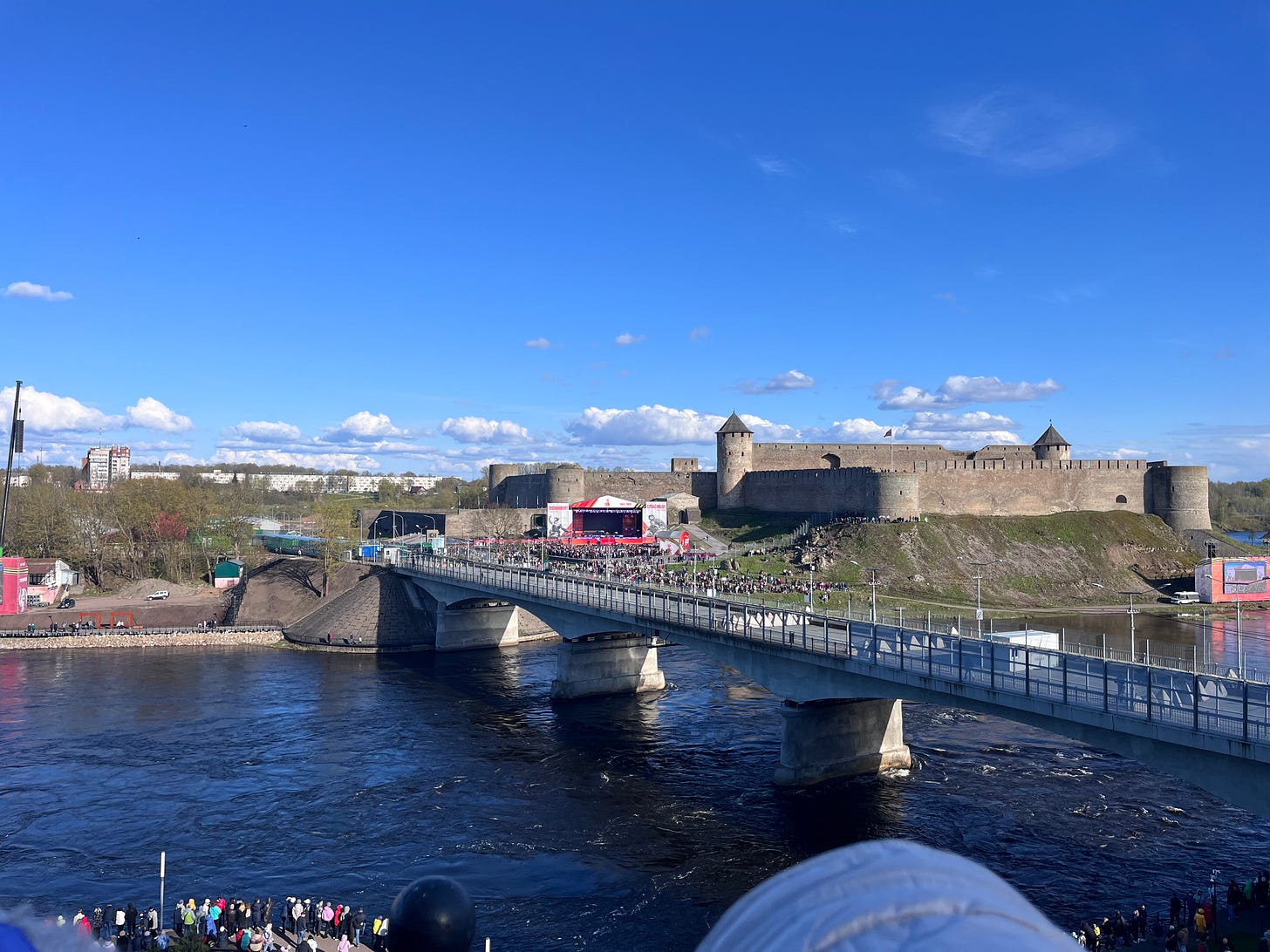
Finally, some non-journalism things I’ve written:
A short piece on Kazakhstan I wrote for the Princeton in Asia annual newsletter came out this past month. It wasn’t the most exciting story in the world, but I was grateful for the opportunity.
A short piece of fiction that I mentioned in a previous blog post for a local arts criticism zine, which I found in a bookstore in Riga. You can find my story towards the back.
The News
This past week, The New York Times published a short article about Latvia’s annual threat assessment report. This year, Latvian authorities warned locals to be on the lookout for fit hikers taking pictures of critical infrastructure who speak Latvian with an accent and who may appear disheveled. The greasy, athletic backpackers may be Russian spies, warned the government officials. I don’t think I really match this description, but I often wander around Rēzekne taking pictures of stuff. If I end up in Latvian jail, my friend John, who first sent me this article, said he’d bail me out. Thanks John.
Weird stuff keeps happening in the Baltic Sea. This past week, a Russian fighter jet briefly entered EU airspace to ward off the Estonian navy, which was trying to stop a boat in the Russian “shadow fleet.” The ship did not stop, the Russian fighter jet circled overhead, and the Estonian authorities backed down, escorting the vessel back into Russian waters. This is the type of stuff that happens seemingly every other week. Even though I really don’t think an invasion of the Baltics is imminent, it’s incidents like this that have people in the region feeling like one miscalculation from either side could turn into an intractable conflict.
Personals
Sometime in February, I was saying goodbye to a friend I had made in Rēzekne. She’s in the national guard and was being deployed to Kosovo on a peacekeeping mission. She was looking forward to going, but I was feeling bummed about her leaving since she’d probably been my closest friend in Rēzekne up to that point. Some of her other friends showed up to drop her off at the old train station, from which her bus would depart en route to a military base. They arrived in the machine pictured below. These guys were car fanatics, petal-to-the-ground accelerators, snow drifters. After we dropped her off, they asked me if I wanted to go out drifting with them. Thinking that I really needed to make new friends, I said yes. And off we went into the Latvian night. I wasn’t too worried. They’ve been doing this for years.
The drivers communicated by walkie-talkies. The chatter included debates over which roads will have the best turn angles, gas tank levels, and police sightings. Once we found a good place, the procession began: one car after another swayed side to side, carving up the rural roads with locked-up rear wheels. It was a delicate dance of balance and finesse. Approach from a softer angle at low speeds and the car won’t turn sideways. Take the angle too sharply and you’ll spin out. But the driver, (whose name I won’t reveal here since I think this technically constitutes reckless driving) told me that going into a ditch is part of the fun.
Then, a new game begins. How can you get the car out? What’s damaged? How hard will it be to find replacement parts for their forty-year-old cars? And how much will it cost to get drifting again?
We did not go into a ditch. We didn’t even get close. At one point, however, someone discovered dried-up vomit in the back seat. Apparently, a previous passenger had yacked but elected to keep quiet.
After about an hour, they guys radioed back and forth that they were getting low on fuel. We headed back into town and stopped at a gas station. There, the driver of the car I was in put about 15 euros on the pump, just barely getting the needle off E. One of the other drivers went home, and the guy driving the third car didn’t have any money for gas. We left his car in a nearby lot and piled in for one last ride. As we were pulling out, another group of guys who had been loitering nearby got into their own cars and immediately revved their engines, skimming through the snow while taking a hard left onto the main road.
It wasn’t uncommon to see this type of thing in Rēzekne. Cars screeched around corners all over the city. But that night was when I realized all those tire tracks I’d seen on the roads and all the times I’d jumped when engines backfired were more than just a few reckless drivers: This is what young men do in Latgale. This is how they spend cold nights in a quiet, boring town in one of the poorer parts of Europe.
On our second run, I started to think about this as a potential culture piece. The group was all young men. Most of them either didn’t work or didn’t have official work, meaning they made money through a combination of side hustles like running deliveries for family businesses, selling phone cases, etc. No one was rich, but everyone was dedicated to the drift.
So, I started to pitch it around. Some editors at a few culture magazines didn’t respond. Then, I thought maybe it was a Russia-related story. The guys were speaking Russian with each other, and gas prices were sky-high for a while after the full-scale invasion of Ukraine. A couple editors at some Russian-focused outlets said that it was a cool idea, but the Russia connection wasn’t strong enough for them to commission. Fair enough, I thought. One editor from a new start-up outlet liked the pitch, but he asked me over email, about whether this was a story about young men killing time while the specter of war looms (or something like that) and if there were any appealing “characters.”
I was kind of offended. These aren’t “characters.” These are people I know. They’re my neighbors. Some of them I consider friends. They’re not just fodder that can be tied to the closest geo-political conflict, I thought. But, of course, I responded that yes, there are good “characters” (all people have vivid lives) and there’s a Russia tie (we’re less than 30 miles from the border, I’d find some connection). He said he liked the idea, and that if I got more people in the drifting community to talk to me, he’d commission it.
I was psyched. But so far, in the last month or so, I haven’t gotten anywhere with other sources. I’ve sent emails, Facebook messages, Telegram DMs, and have gotten nothing back. But while waiting, I’ve had time to reflect on my own “freelance brain” and realized I’m no better than these editors. I’m looking for the angle that can get me a commission. In so many of the conversations I’ve had in the last eight and a half months, there’s been a little voice in the back of my head wondering, “Is this a story?” “Who’d take this if I pitched it?” “What would be the narrative here?”
A lot of people — and a lot of journalists — talk about journalism like it’s saving the world. I believe it does have real value. Muckraking, local reporting, unveiling the secrets that the rich and powerful want to keep hidden are all important. It’s also got merit just as entertainment. Not every piece is uncovering Watergate — I know that. But journalism is fundamentally also extractive. We (journalists) have to “take” in order to “give” to our readers. In my short career as a journalist, I’ve built up my “taking” muscle. I’ve seen grown men’s lips quiver as they tell me about their disappearing livelihood. I’ve elicited responses through tears about abused family members. I’ve asked people, again and again, to tell me their most precious moments and most heart-breaking memories, so that I can have a nice hook to start a piece for which I might earn $150.
I came into this nine-month experience knowing that I wanted to write stories. In many ways, it was my number one goal. With the stories I’ve highlighted in this post, I feel like I’ve at least done something. I can now kind of say that I’ve been a freelance foreign correspondent. But even though I’m telling their stories, how much is it really for them? How much of this is really all about me? It’s a tough question with no exact answer. But as I reflect on this year, I wonder about how many of the people I met could have been just “friends” instead of being “sources.” Would I have enjoyed this place more? Would I feel more deeply connected to the people here?
This drifting story will probably never come out. Maybe that’s a good thing.
Thanks for reading! Email with typos please!

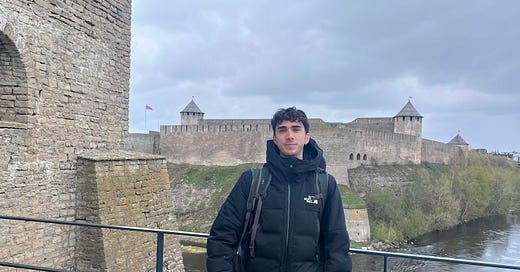



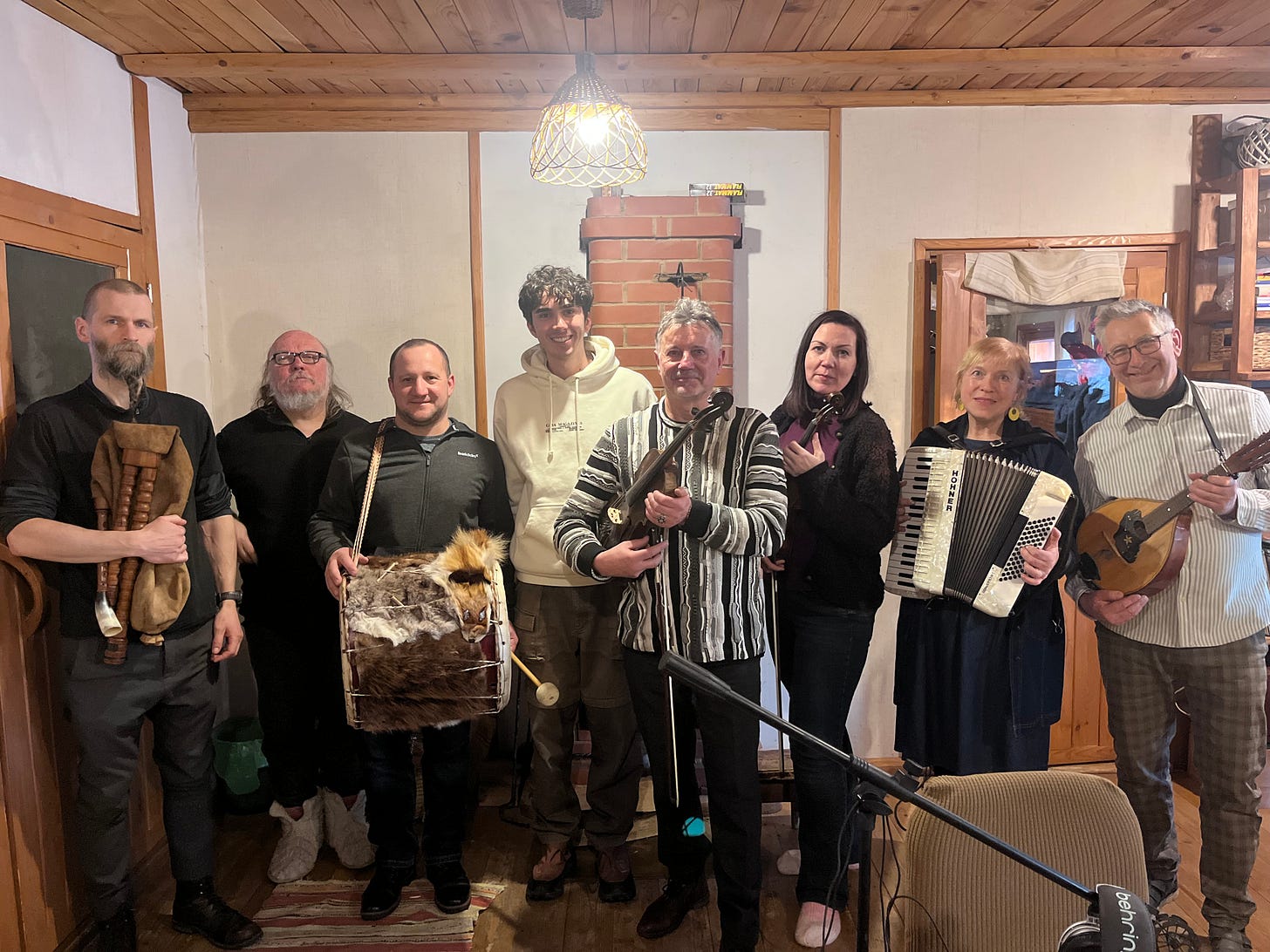
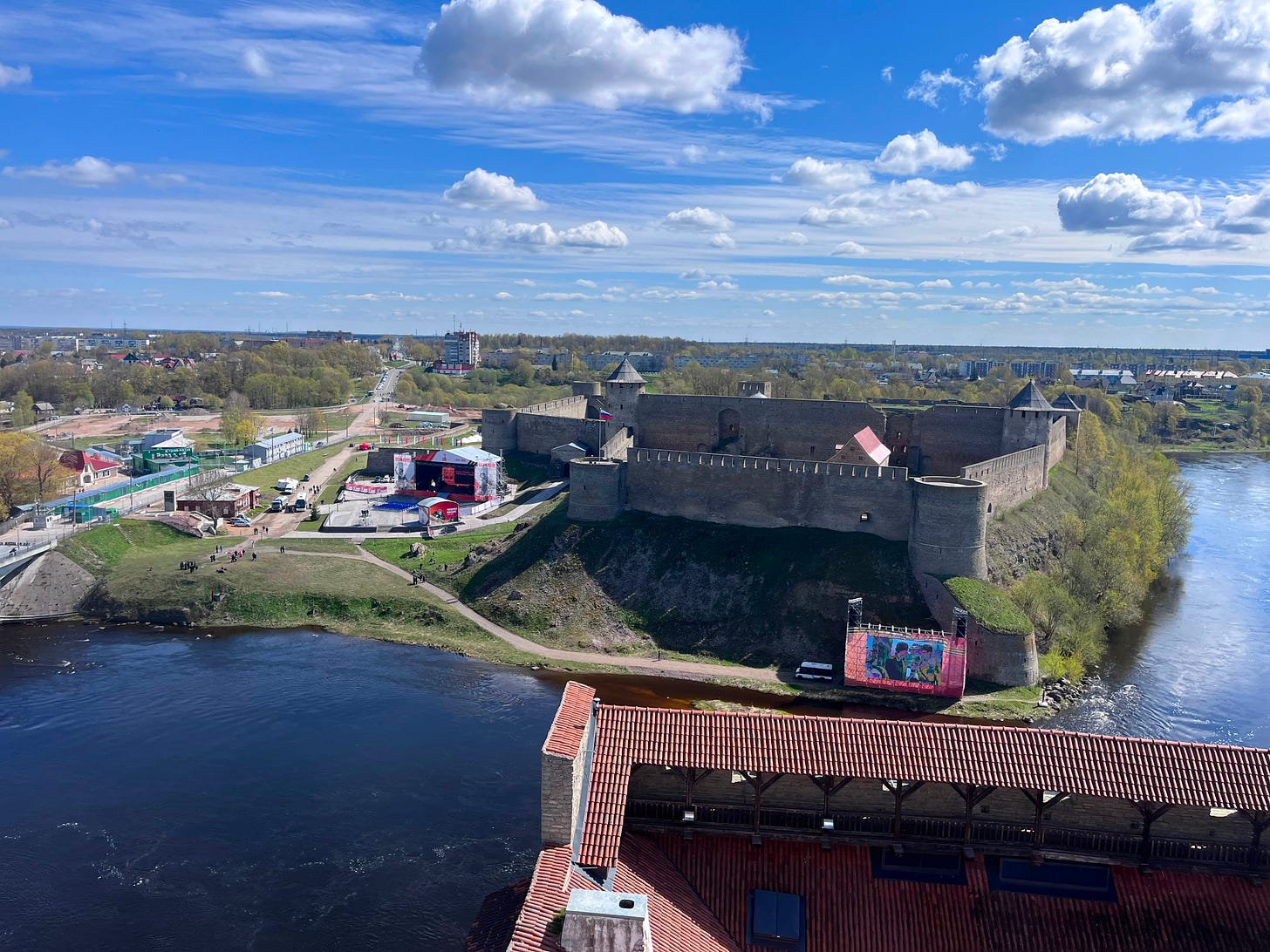

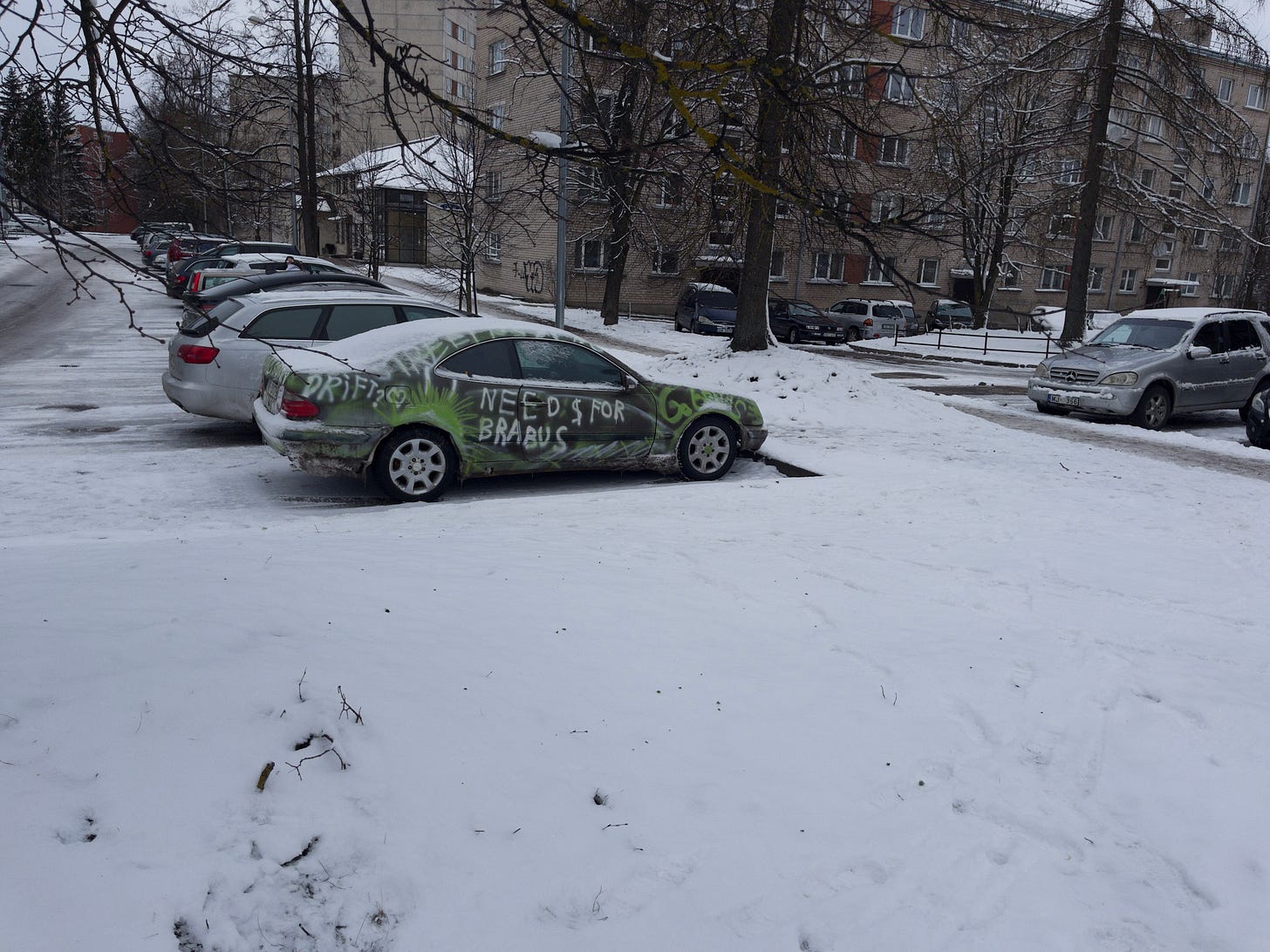
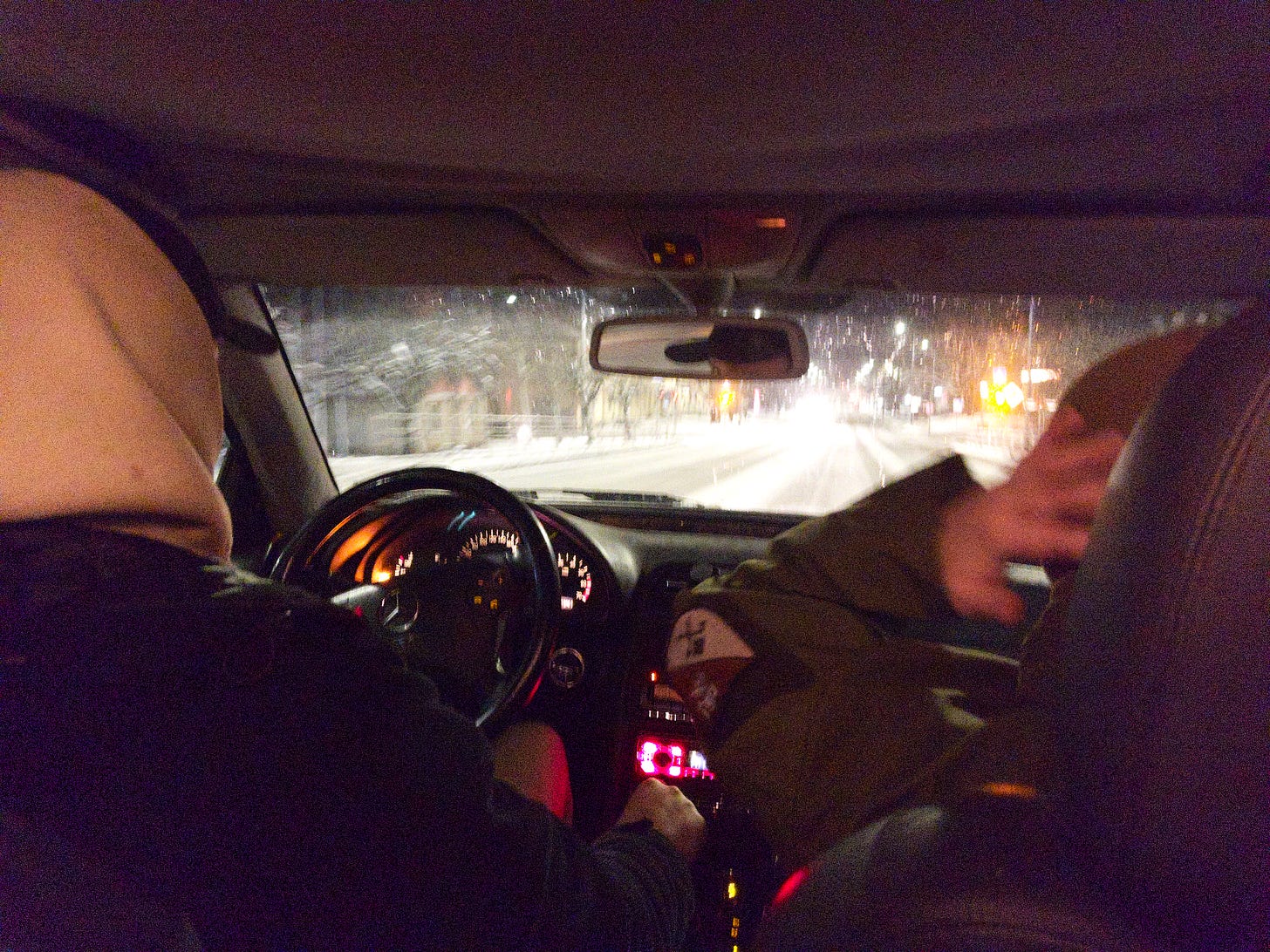
Loved reading your updates!
Nice blog Jack! Glad we are just hearing about the drifting now🤣.